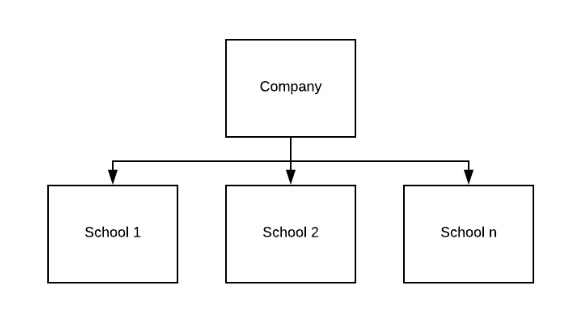31 August, 2018
With the rapid development of the Vietnamese economy, the demand for high quality education is booming and attracts huge investments with the hope of high returns. The profit margins of international schools in Ho Chi Minh City and Hanoi are proof of the profitability of this business sector. Many foreign investors wish to enter this emerging market.
To meet the demand of a new regulation framework for foreign investment in education, the Vietnamese government has just promulgated Decree 86/2018/ND-CP (New Decree), replacing Decree 73/2012/ND-CP (Old Decree) on foreign investment in the education sector.
The New Decree eliminates a number of barriers for foreign investors to invest in education, as well as provides clear guidance on corporate governance of foreign-invested educational institutions (foreign-invested schools). This article will focus on key implications of the new regulations on foreign-invested schools.
First of all, the biggest barrier to foreign investors is the limitation on the number of Vietnamese students allowed to participate in foreign-invested schools. Under the Old Decree, the number of Vietnamese students in a primary school or secondary school could not exceed 10% of the total students, and the number of Vietnamese students in a high school could not exceed 20% of the total students. Vietnamese students under five years old could not be admitted to study in foreign programs.
The Old Decree was ambiguous, so there were two approaches on the interpretation of that regulation. The first approach was that if the foreign-invested schools provided the curriculum designed by the Ministry of Education and Training (MoET), such limitations would not be applied (it is worth noting that even the right to provide the MoET curriculum was ambiguous under the Old Decree).
The second approach was that regardless of the provided curriculum, the foreign-invested schools were only allowed to admit Vietnamese students up to 20% of the total students of such schools. The second approach was a huge concern with investors. Due to the ambiguous nature of the Old Decree, most foreign-invested schools had to obtain an official letter from the MoET confirming the first approach, and in order to admit Vietnamese students, those schools still had to follow the MoET curriculum. Other subjects were taught as extra-curricular activities.
Fortunately, the New Decree indirectly confirms the first approach and raises the limit to 50% of total students. Also, a foreign-invested kindergarten using a foreign education program is now able to freely admit Vietnamese students. This means that more Vietnamese students can participate in a foreign education curriculum.
Second of all, the New Decree provides clear guidance to harmonize the education regulations and the Law on Enterprise. The Old Decree considered a foreign-invested school as a legal entity, but was silent on whether that was an enterprise under the Law on Enterprise. That caused confusion regarding the legality of the schools.
Fortunately, the New Decree fixed this problem. Accordingly, the schools will be a division of a company rather than being separate legal entities. The model is as follows:
Please click on the image to enlarge.
Those schools can be considered as “branches” or “business locations” of the company.
Besides that, under the New Decree, foreign investors can acquire shares/capital contributions in companies which own schools, while the Old Decree only allowed green field investments.
Additionally, the New Decree allows schools whose facilities are leased to have the term of operation up to 50 years (but shall not exceed the term of the lease agreement). Under the Old Decree, the maximum term of operation of such schools was less than 20 years.
On the other hand, the New Decree sets new or higher conditions in comparison with the Old Decree. The minimum investment capital to establish a foreign-invested university is increased from VND 300 billion to VND 1,000 billion (excluding the land-use fee). If the university’s facilities are leased, the minimum investment would be VND 700 billion.
In conclusion, the New Decree became effective 01 August 2018. By giving clear provisions and fewer restrictions, the New Decree will provide huge support for foreign investors to participate in this profitable sector.
However, there are still ambiguous provisions so it is suggested that a professional be consulted before conducting any investment in Vietnam.
OTHER LEGAL UPDATES
There are also other legal documents promulgated, including:
- Decision 27/2018/QD-TTg regulating the Vietnam industrial system, in which there are classifications of the Vietnam economy. It is effective from 20 August 2018.
- Circular 15/2018/TT-NHNN amending Circular 22/2016/TT-NHNN on the purchase of corporate bonds by credit institutions and branches of foreign banks. It is effective from 02 August 2018.
- Law No. 23/2018/QH14 on competition replacing current Law No. 27/2004/QH11. It will be effective from 01 July 2019.
- Circular No. 15/2018/TT-BCT providing guidance on issuance procedures of certificate of origin of preferential goods to differentiate exporters. It is effective from 15 August 2018.
- Law No. 26/2018/QH14 on amendments and supplementations to Law No. 77/2006/QH11 on physical training and sports. The new Law supplements the provisions of sports betting in the old Law, which was previously stipulated in the Decrees and limited in some areas (such as horse racing and dog racing). It will be effective from 01 January 2019.
For further information, please contact:
Hong Bui, Partner, LNT & Partners
hong.bui@lntpartners.com






